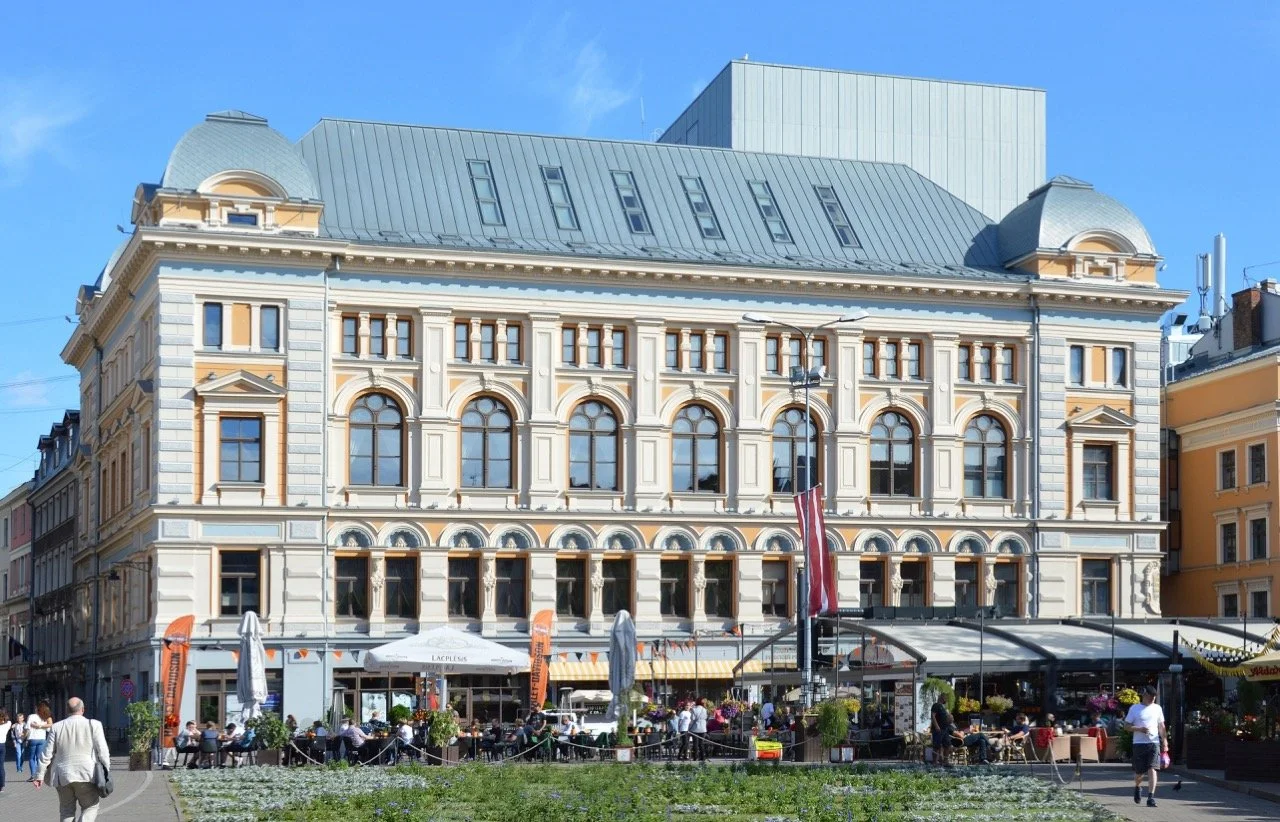The Mikhail Chekhov Riga Russian Theater in Riga, Latvia, faced political censorship under the Soviets but managed to keep its doors open.
Riga Russian Theater, 2018. Olaf Meister. CC BY-SA 4.0
Established in 1883, the Mikhail Chekhov Riga Russian Theater was the first of two kinds: the first professional theater in Latvia and the first Russian-language theater outside Russia. Before it was founded, there were no permanent Russian theaters in the capital city, only the occasional amateur performance, and it is thus deeply rooted in the history and development of professional theater in Latvia. Today the theater offers a mix of classical plays and modern, experimental works.
In 2006, the theater, known previously as the Riga Russian Drama Theater, was rechristened the Mikhail Chekhov Riga Russian Theater as a tribute to the actor, director and teacher, who spent two years working in Riga in the 1930s. A friend of Chekhov’s, Janis Karklinsh, quoted one of Chekhov's interviews with the Latvian press from this time: "Great nations crumble under the outcome of materialism and lust for power. The revival of art comes through the small nations.'' It was Chekhov’s opinion that the cultural context of Latvia in the early 1930s was the best ground for "real art.” Germany and France treated art as a "pretty cheap kind of entertainment.” “New art" could only be born in a developing country that was in the midst of cultural renewal. While in Riga, Chekhov directed and acted in five performances.
The theater continuously confronted the issue of a lack of funding. In the early 1900s, a committee known as the Society of the Guarantors of the Russian Theater in Riga was formed with the task of ensuring “the permanent existence of the Russian theater in Riga.” The First World War disrupted these efforts, and for a period of time between 1915 and 1921, the theater ceased operations. In 1921, the Latvian government made the decision to allocate close to $1,700 a year in order to “support the theaters of national minorities—German, Jewish, Russian” and the theater was able to resume its activities.
On August 5th, 1940, Latvia was occupied by the Soviet Union. Around 35,000 Latvians were killed or deported during the occupation between 1940 and 1941. As a result, the Riga Theater became a public theater and was cut off from its financial support from private entities, facing the political censorship that was common under Soviet occupation. It was not until 1998, less than a decade after Latvia had regained its independence from the USSR, that the Society of Guarantors was revived and the theater could once again receive financial donations.
The theater employs directors and designers from all parts of Europe, including Belarus, Estonia, Lithuania, Germany, Sweden, Italy, and more. Following the tradition of Russian theater, the company often performs pieces that include music and dance, though its repertoire is by no means limited to musicals. Directors employed by the theater strive to choose works that are profound and psychologically provocative in nature and push the boundaries of drama itself.
The theater retains a permanent troupe of actors as well as a repertoire of Russian, Latvian and international works, as well as works by young, emerging playwrights. In 2018, the theater inaugurated a studio for children and youth, ages seven to twelve, to train in the performing arts and develop skills in confidence and communication. Although the studio had to pause its workshops during COVID-19, as of 2024 they have resumed.
According to its website, the theater “harmoniously lives in the cross-cultural space, participates in the cultural dialogue—both nationally and internationally,” making it a significant cultural institution for Latvia.
Rebecca Pitcairn
Rebecca studies Italian Language and Literature, Classical Civilizations, and English Writing at the University of Pittsburgh. She hopes to one day attain a PhD in Classical Archeology. She is passionate about feminism and climate justice. She enjoys reading, playing the lyre, and longboarding in her free time.


